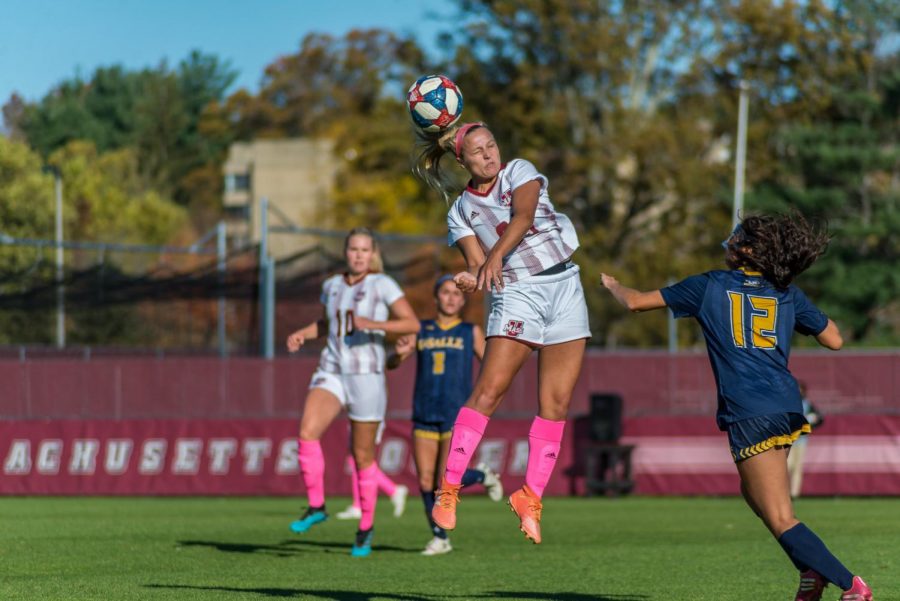With UMass as its latest example, the NCAA has proven yet again to be an organization incapable of consistency or accountability in its handling of athletic violations
Vacating 46 men’s basketball wins over $9,100. A women’s tennis Atlantic 10 Championship nullified over $9,100. Two established programs with their histories tarnished – over accidental payments distributed to 12 players – totaling $9,100.
Compare that to $55 million. That is the amount of money Clemson University spent on its football facility in 2017.
I am not blaming Clemson for spending this money to attract recruits, nor am I blaming a UMass administration that incorrectly awarded financial aid to 2 percent of student-athletes over a three-year-period.
This is not a problem limited to certain universities across the country. This is an institutional problem.
In 2017, the University of Louisville was forced to vacate 123 wins (and a 2013 National Championship) from their men’s basketball program because a staffer was soliciting prostitutes to recruits and prospects on the Louisville campus. Granted, they were also fined $600,000 – or the equivalent of their tournament winnings over that period – but earned more than 25 times that amount in revenue from the 2013 basketball season alone.
The fact that providing escorts to recruits through an athletic department’s most successful program elicits a similar punishment as a series of minor accounting errors is laughable. It proves that the NCAA has zero consistency and accountability when it comes to establishing a precedent for handling athletic violations. Or does it?
This spring, Stephen F. Austin University also had over 100 wins vacated across three sports for “improperly certifying ineligible athletes” through a clerical error that incorrectly made 82 student-athletes eligible. While this included many more students than UMass’s scandal, the nature of the violations were similar in one sense: they were administrative mistakes that inadvertently affected a significant amount of student-athletes in a positive way, either through more financial aid going to them or by allowing them to be eligible when they otherwise would not be.
Compare this to the self-imposed punishment LSU gave itself this past week: the football program said it would vacate eight scholarships over two years because former star receiver Odell Beckham Jr, who is now banned from the school for two years, was handing wads of cash to student-athletes after the Tigers’ National Championship victory last season. And a booster was caught embezzling half a million dollars to players through a local hospital.
It remains to be seen whether the NCAA will accept LSU’s self-imposed slap on the wrist or further increase the punishment severity, but one thing is clear: this governing body’s sense of a fair and balanced administration is hypocritical at its best and downright corrupt at its worst.
Their improved measures to sniff out financial violations in 2017 were described as ones that “promote integrity, strengthen accountability and prioritize student-athletes.” In reality, the NCAA’s current administration promotes deceit to avoid punishments, takes zero accountability for their lack of consistency and places student-athletes at the mercy of how much revenue their respective athletic department made that year. It’s time to not only expect better from college athletics’ primary governing body, but to demand better, too.
Freeman Alfano can be reached at [email protected]. Follow him on Twitter @freemanalfano.



















